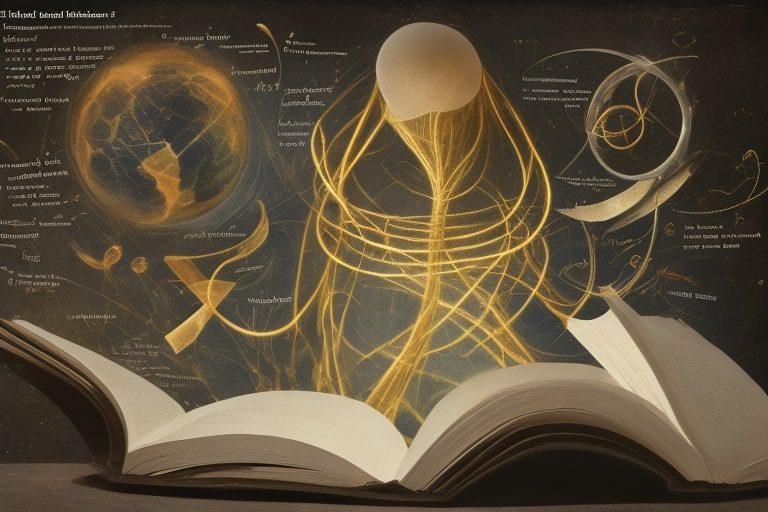
Knowledge is a critical aspect of human life. It provides us with the ability to understand and interpret the world around us. The term ‘knowledge’ is often used interchangeably with ‘information,’ but they are not the same. While information is merely data or facts, knowledge goes beyond that to include the understanding of the meaning and significance of that information. In this article, we will delve into the basics of knowledge and explore what it entails.
Introduction
Knowledge is essential to human life, and without it, we cannot function effectively in society. It is the foundation of education, technology, science, and culture. It is through knowledge that we are able to progress and advance as a species. But what exactly is knowledge? What are its types, sources, and limitations? How do we acquire it, and why is it important? This article seeks to answer these questions and more.
- The Definition of Knowledge
Knowledge is the understanding of information and the ability to apply that information in a meaningful way. It is not merely the accumulation of data or facts but also the interpretation and comprehension of those facts. It involves the integration of new information with existing knowledge to form a coherent and useful understanding. - The Types of Knowledge
There are several types of knowledge, including:
a. Explicit Knowledge
Explicit knowledge is knowledge that can be easily codified, written down, or shared. It is formal, structured, and can be easily communicated through language, symbols, or numbers. Examples of explicit knowledge include scientific formulas, mathematical equations, and procedural guidelines.
b. Tacit Knowledge
Tacit knowledge, on the other hand, is knowledge that is difficult to express or transfer. It is often based on personal experience, intuition, or judgment. Examples of tacit knowledge include skills, attitudes, and beliefs.
c. Procedural Knowledge
Procedural knowledge is knowledge of how to do something. It involves understanding the steps, processes, and methods required to perform a task. Examples of procedural knowledge include cooking, driving, and operating machinery.
d. Declarative Knowledge
Declarative knowledge is knowledge of what something is, its characteristics, and how it relates to other things. It involves the ability to describe, explain, or define something. Examples of declarative knowledge include historical events, scientific concepts, and mathematical principles.
- The Sources of Knowledge
There are various sources of knowledge, including:
a. Experience
Experience is one of the most significant sources of knowledge. It is through our experiences that we learn and gain knowledge. Experience can be gained through observation, experimentation, and direct interaction with the world.
b. Authority
Authority is another source of knowledge. We often rely on experts, leaders, or trusted sources of information to provide us with knowledge. For example, we trust doctors to provide us with medical knowledge, and scientists to provide us with scientific knowledge.
c. Reasoning
Reasoning involves using logic and critical thinking to arrive at knowledge. It involves making deductions, inferences, and conclusions based on evidence and facts.
d. Intuition
Intuition is a source of knowledge that involves using one’s instincts and feelings to arrive at knowledge. It is often based on subconscious thoughts and emotions
- The Acquisition of Knowledge
The acquisition of the Basics of Knowledge involves the process of gaining knowledge and adding it to one’s existing knowledge base. This process involves several steps, including:
a. Perception
Perception is the first step in acquiring knowledge. It involves the ability to receive and interpret information through the senses, such as sight, hearing, touch, taste, and smell.
b. Attention
Attention is the second step in acquiring knowledge. It involves focusing one’s attention on a particular object, idea, or phenomenon to gather more information about it.
c. Memory
Memory is the third step in acquiring knowledge. It involves the ability to store and retrieve information over time. Memory is crucial for learning and retaining new knowledge.
d. Comprehension
Comprehension is the fourth step in acquiring knowledge. It involves understanding the meaning and significance of the information gathered through perception, attention, and memory.
e. Application
Application is the final step in acquiring knowledge. It involves the ability to use the acquired knowledge in a practical and useful way.

- The Importance of Knowledge
Knowledge is essential for human development and progress. It is the foundation of education, science, technology, and culture. Without knowledge, we cannot advance as a society or as individuals. Knowledge provides us with the ability to understand and interpret the world around us, solve problems, and make informed decisions. - The Limitations of Knowledge
While knowledge is critical to human development and progress, it also has its limitations. Some of the limitations of knowledge include:
a. Incompleteness
Knowledge is never complete. There is always more to learn and discover. The more we know, the more we realize how much we don’t know.
b. Subjectivity
Knowledge is often subjective and influenced by personal biases, beliefs, and experiences. What one person considers to be true may not be true for another.
c. Fallibility
Knowledge is not infallible. It is subject to errors, mistakes, and misunderstandings.
d. Context-dependence
Knowledge is often context-dependent. The same information can have different meanings or interpretations depending on the context in which it is presented.
- The Role of Knowledge in Society
Knowledge plays a vital role in society. It is the foundation of education, science, technology, and culture. It provides us with the ability to understand and interpret the world around us, solve problems, and make informed decisions. Knowledge also plays a significant role in social, political, and economic development. - The Ethics of Knowledge
The acquisition and use of knowledge raise ethical questions and concerns. Some of these concerns include:
a. Ownership
Who owns knowledge, and who has the right to control its use and dissemination?
b. Access
Who has access to knowledge, and who is excluded from it? How can we ensure that knowledge is accessible to everyone?
c. Responsibility
What are the ethical responsibilities of those who possess knowledge? How can we ensure that knowledge is used for the greater good and not for harmful purposes?
- The Future of Knowledge
The future of knowledge is uncertain, but it is clear that knowledge will continue to play a critical role in human development and progress. The rapid advancement of technology and the increasing globalization of knowledge are likely to shape the future of the basics of knowledge.

